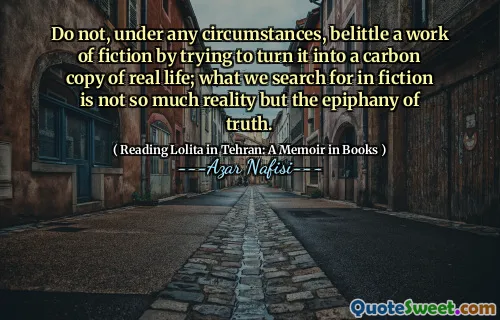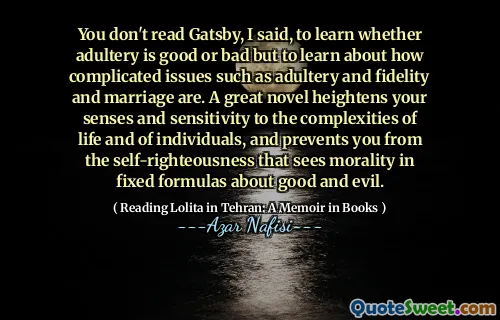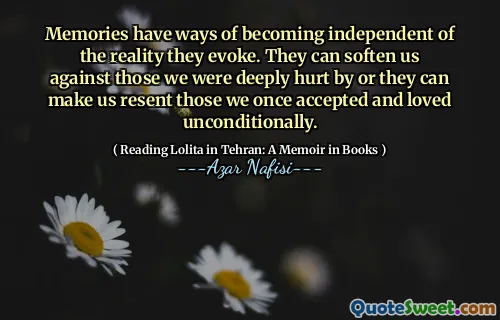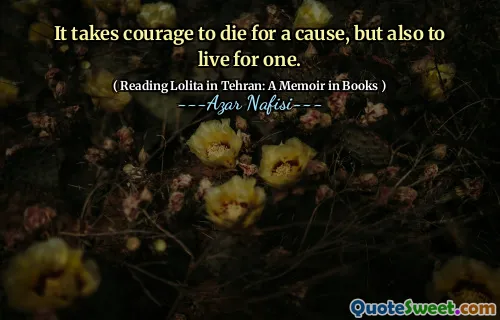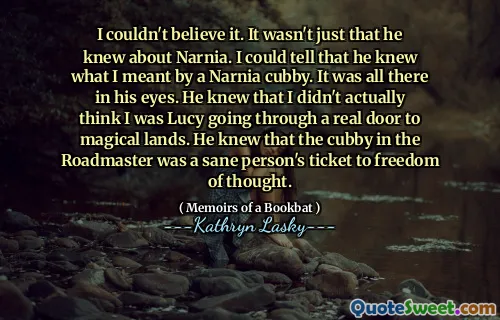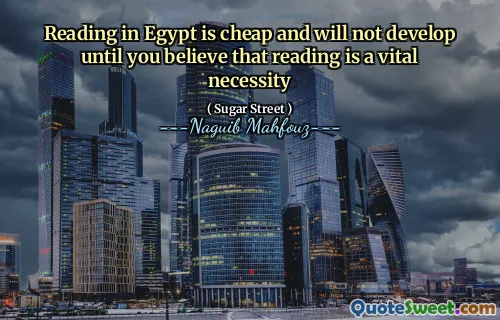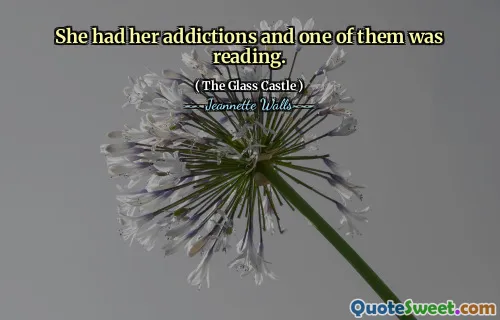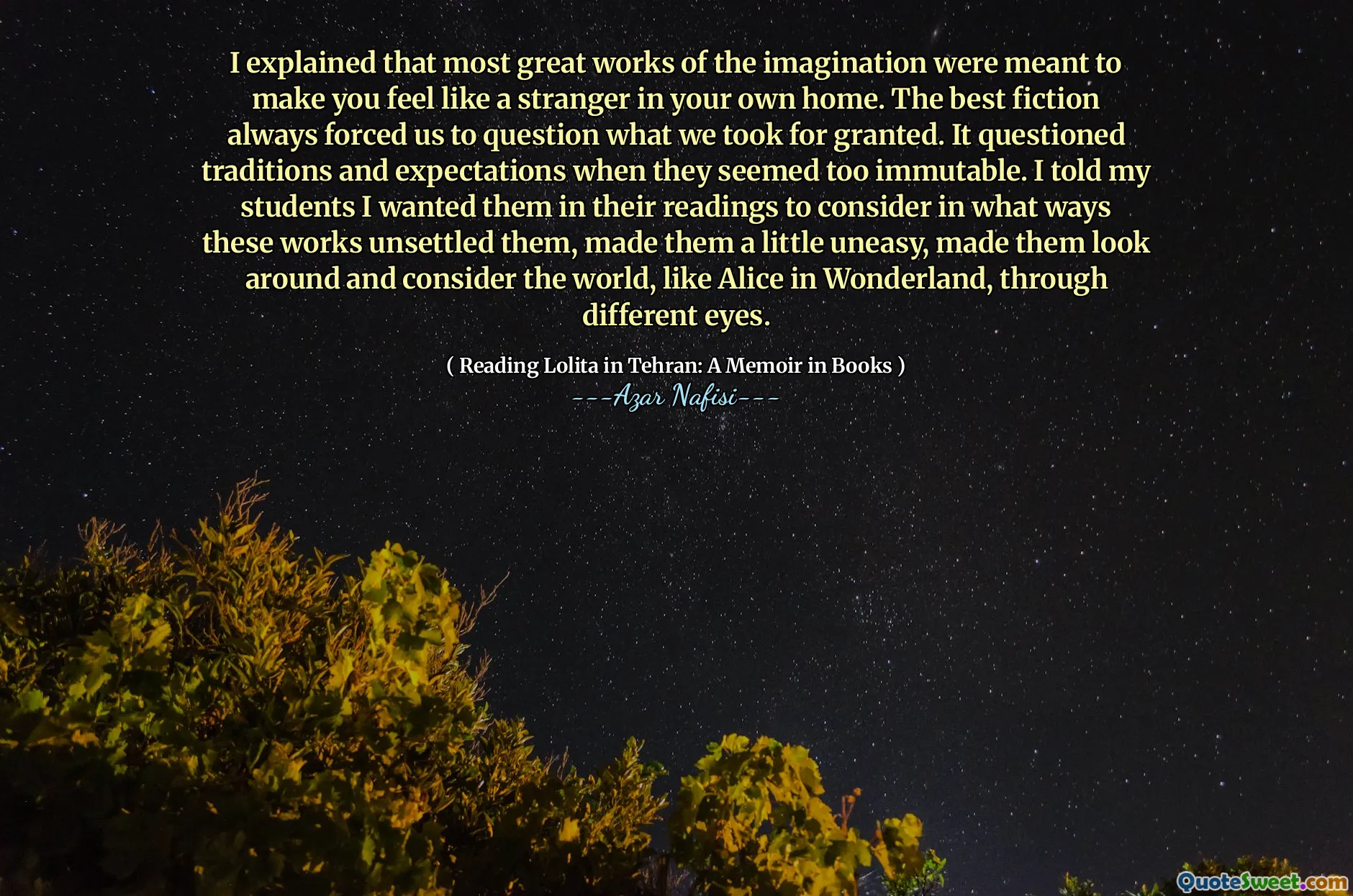
I explained that most great works of the imagination were meant to make you feel like a stranger in your own home. The best fiction always forced us to question what we took for granted. It questioned traditions and expectations when they seemed too immutable. I told my students I wanted them in their readings to consider in what ways these works unsettled them, made them a little uneasy, made them look around and consider the world, like Alice in Wonderland, through different eyes.
📖 Azar Nafisi
In "Reading Lolita in Tehran," Azar Nafisi emphasizes the transformative power of literature. She believes that great literary works challenge the reader's perceptions of their own reality, creating a sense of alienation even in familiar surroundings. By questioning deeply held traditions and societal norms, fiction encourages individuals to reconsider their beliefs and assumptions. Nafisi encourages her students to embrace this discomfort as a critical part of the reading experience.
Nafisi draws parallels to "Alice in Wonderland," illustrating how literature can provide new perspectives and insights. She urges her students to reflect on how these narratives unsettle their understanding of the world and inspire them to look beyond the surface. Ultimately, she advocates for an approach to reading that values introspection and critical thought, making literature a powerful tool for personal and societal exploration.

